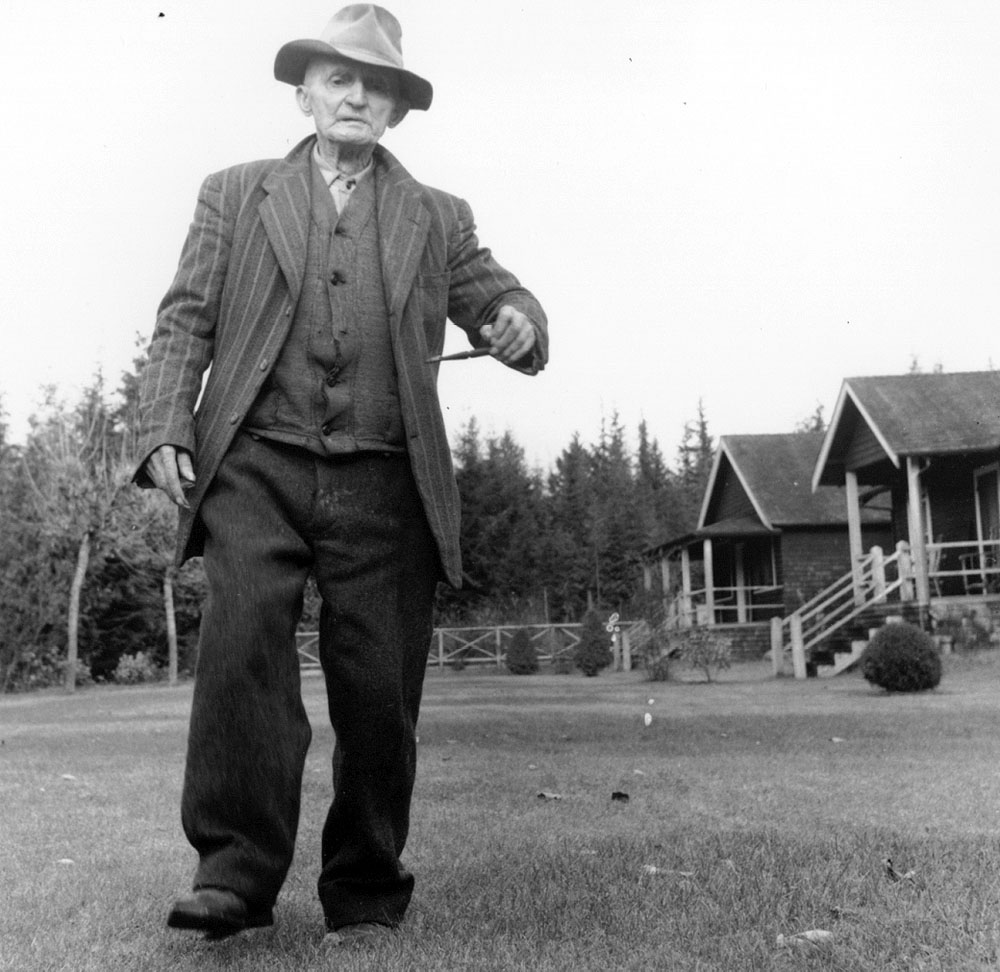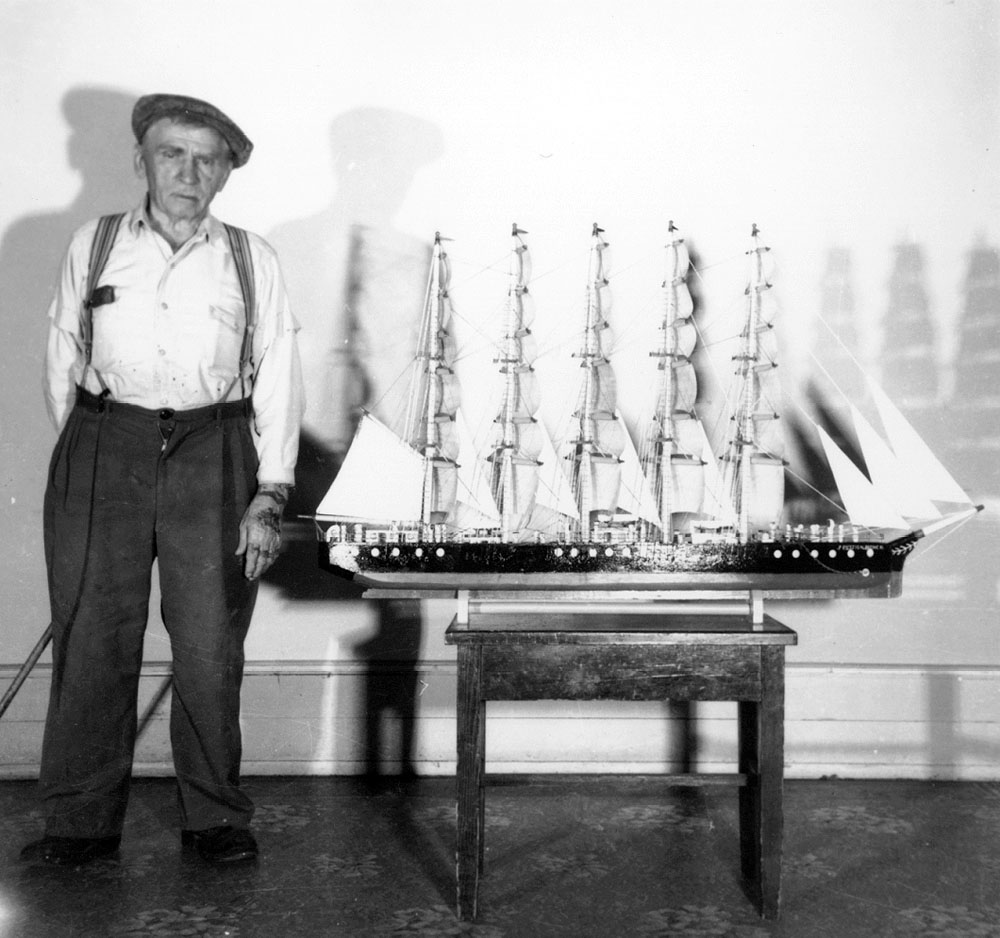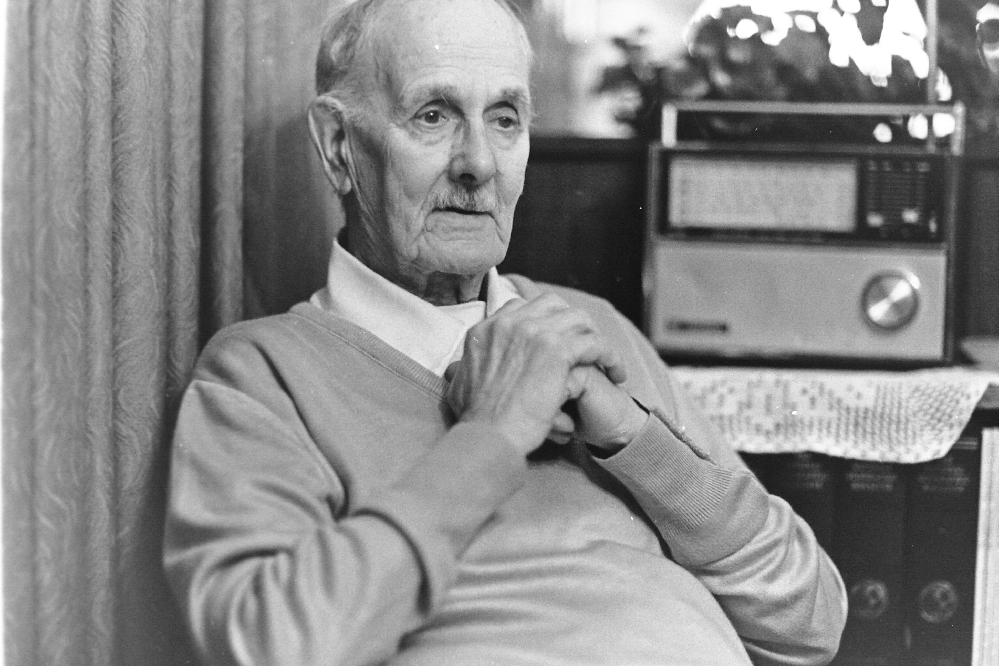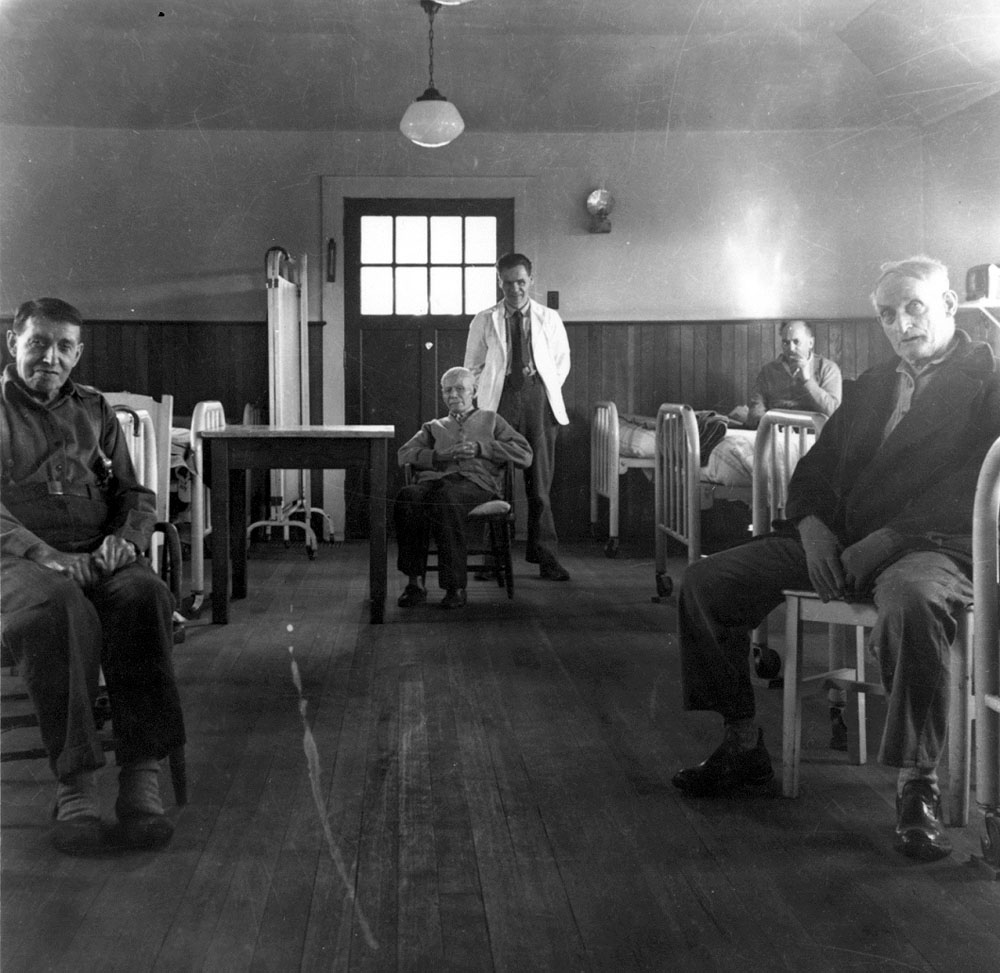
In 1935, Allco Camp provided a humane residence for elderly or disabled men who had little means of support. The bunkhouses, cook house and offices, built of Number 1 Clear Fir, were all part of Headquarters Camp for the Abernethy & Lougheed Logging Company that operating a railway logging outfit here during the 1920s. Train cars loaded with logs cut in the area of what is now Golden Ears Park crossed a wooden trestle bridge over the South Alouette River near the camp. When the company went bankrupt in 1929, the provincial government took over the ready-made site as a relief camp for the unemployed in the depression, a place to stay while they laboured on make-work projects.
Then in 1935, under the auspices of the Provincial Infirmary organization, all the patients from Hatzic Infirmary were moved to the Allco Infirmary, under the oversight of Doctor J. West. At this time the old wooden trestle bridge was still standing. The camp enlarged, with the addition of a recreational hall and a small hospital, and the offices remodeled as a dispensary and staff accommodation. George Pocock, who worked at Allco for 33 years until it closed in 1964, wrote an insightful description of the life of the elderly men who lived out their lives there.

The day the Allco Infirmary closed “was a very sad day for the patients since they had enjoyed peace and quietness and had been able to busy themselves with whatever they desired. Some made their own little gardens; others had their own pets, such as rabbits, baby chicks. They built their own little pens with material found in the bush. Others loved chopping out trails through the woods, built benches, tables, ship models, and others would like to sit and smoke their pipes with an odd card game, others chopped wood, bringing it in the cabin to keep the wood fires burning in the old drum heaters. These men who came from all walks of life – loggers, gold miners from the Yukon, prospectors, construction workers and farmers who were all burnt out, were deeply saddened when they moved.”

George Pocock had a personal understanding of homelessness and loss. He had been orphaned at the age of seven in England. An uncle shipped him off to Canada at the age of twelve, with no real plan in place, so George eked out a living by farm work. World War I offered a chance for steady employment, so he signed up at the age of sixteen in the Canadian Army, seeing action and getting gassed in Vimy Ridge and Passchendaele. With some medical training, he moved to Maple Ridge in 1935, getting work at the Allco Infirmary. In spite of such a difficult life, he lived to the age of 98, an honoured member of the Canadian Legion.

In 1964 the B.C. Provincial Government decided to shut down all their Infirmaries including Allco and Marpole, sending the remaining residents to other facilities or hospitals. The next incarnation of Allco camp was as an alcohol treatment centre for people under court sentence, confusing people about the real origin of the name. After being closed for a time, it was reopened as a prison for men serving provincial sentences. It is currently being used as a women’s prison as well as an important local fish hatchery.
Sheila Nickols
“Looking Back” MR-PM NEWS 2005-06-01